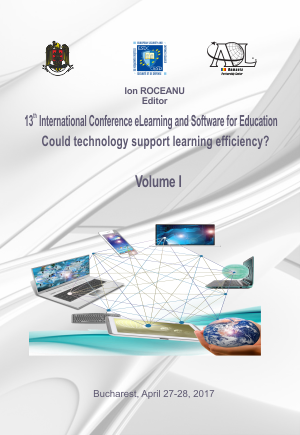ONLINE SYSTEM FOR FLUID POWER TRAINING RESOURCE SHARING
ONLINE SYSTEM FOR FLUID POWER TRAINING RESOURCE SHARING
Author(s): Dragoş-Florin CHITARIUSubject(s): Social Sciences, Education
Published by: Carol I National Defence University Publishing House
Keywords: Online laboratories; training; online data acquisition.
Summary/Abstract: At this stage of development, costs of the development and use of the training stands, in fluid power training centers, are very high because of the complexity of the hydraulic equipment and electronic control modules, PLC and dedicated software and in some cases of the data acquisition equipment. In training of operators, especially who use hydraulic power equipment, the simulations of hydraulic feedback in controls, specific sound made by the hydraulic pumps and actuators are important for understanding the equipment correct functioning. Also, in the training of maintenance operators, the simulations of various failures, which can occur in the hydraulic circuits, can be preprogramed in the online training software. In the paper, a system is presented for resource sharing in the case of training centers, which can communicate online for sharing of hardware resources. In order to achieve the proposed goal there are a series of organizational steps to fulfill: a. unification of the training course between the partner centers; b. establishing the common stand/ equipment's for each training centers, and equipment's available in the online resource sharing system or found on selected, better equipped centers; c. completion of the experimental stands, with the data acquisition equipment and data acquisition software and preparing the input/output simulator. This will enable users to create hydraulics schemes, validate and perform remotely the task on hand, d. completion of the communication infrastructure. The students/ trained participants can work simultaneously on the online software, virtually test, troubleshoot, and validate hydraulic circuits. After validations of the proposed hydraulic circuits, students can enter variable in the control, command system of the stand, and remotely perform the experiment. If the experimental stand is available, the student can physically perform the experiment, if not, they can remotely perform the experiment by entering the commands and the physical experiment is made in other training centers, from a distance, and controlled online by the student. The results can be viewed and evaluated via audio-video systems in order to familiarize the students with such remote controlled hydraulic actuated equipment, for example: cranes, concrete pumps etc.
Journal: Conference proceedings of »eLearning and Software for Education« (eLSE)
- Issue Year: 13/2017
- Issue No: 01
- Page Range: 357-362
- Page Count: 6
- Language: English

